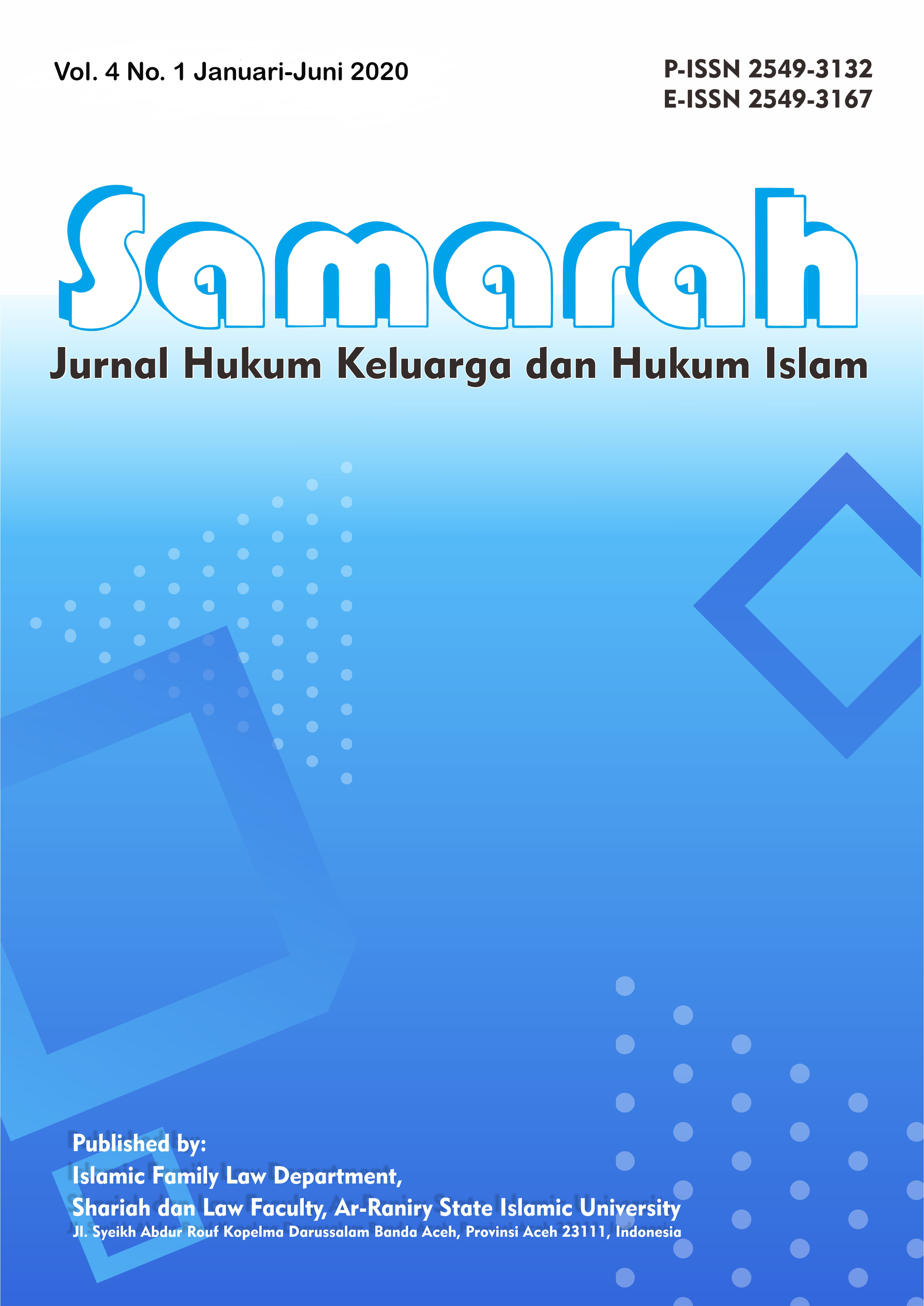Maslahat as Considerations of Islamic Law in View Imam Malik
DOI:
https://doi.org/10.22373/sjhk.v4i1.6754Keywords:
Maslahat, Legal considerations, Islamic Law, Imam MalikAbstract
This study aims to reveal the view of Imam Malik about maslahat as an independent proposition in the determination of Islamic law. Trying to explain the terminology of maslahat, uncovering the dimensions of maslahat in the determination of Islamic law, analyzing maslahat as a basis of Islamic law that stands alone to establish Islamic law according to Imam Malik, and citing examples of Imam Malik's fatwa based on consideration of maslahat. This paper is a qualitative descriptive study using a multidisciplinary approach including normative, philosophical, and sociological approaches. This study shows that maslahat contains two sides, namely attracting or bringing benefit and rejecting or avoiding harm in order to maintain the goals of shari'ah, the establishment of Islamic law aims at realizing human benefit that is universal, generally accepted and lasting for all humans and in all circumstances. Imam Malik is of the view that maslahat can be used as a basis for independent legal considerations, without the need for legitimation of the shar'i proposition. For example, Imam Malik establishes the saliva of a holy dog. The fatwa is not in line with the instructions of the hadith that classify it as unclean. Imam Malik was not the first scholar to settle such a law, but his companions had experienced such cases, they then resolved these problems by issuing fatwas that were "contrary to" the instructions of zhahir nas. Therefore, the renewal of Islamic law can be done through maslahat considerations, such as those taken by Imam Malik, in order to provide legal answers to problems faced by the community, so that Islamic law appears to live dynamically in a society that continues to experience changes and developments.References
al-Gazali, Abu Hamid. al-Mustashfa’ fi ‘ilm al-Ushul, jilid II. Bairut: Dar al-Kutub al-Ilmiyah, tth.
Ali, Zainuddin. Hukum Islam: Pengantar Ilmu Hukum Islam di Indonesia, Cet. II. Jakarta: Sinar Grafika, 2008.
al-Syafi’i, Jalaluddin Abd Rahman al-Sayuti. Tanwir al-Hawalik, Syarh ‘al al-Muwatta’, dikutip dalam Ahmad Musyahid, Melacak Aspek-Aspek Sosiologis Dalam Penetapan Hukum Islam.
al-Syatibi, Abu Ishaq. al-Muwafaqat fi Usul al-Syari’ah, Jilid II. Bairut: Dar al-Ma’rifah, 1996.
Haroen, Nasrun. Ushul Fiqh, jilid I. Jakarta: Logos Wacana Ilmu, 1997.
Hasan, Muhammad Tholhah. Islam Dalam Perspektif Sosio Kultural, Cet. I. Jakarta: Lantabora, 2005.
Kementerian Agama RI, Al-Qur’an dan Terjemahannya. Semarang: CV. Toha Putra Semarang, 2016.
Khaeruman, Badri. Hukum Islam Dalam Perubahan Sosial: Fatwa Ulama Tentang Masalah-Masalah Sosial Keagamaan, Budaya, Politik, Ekonomi, Kedokteran, dan HAM, Cet. I. Bandung: Pustaka Setia, 2010.
Khallaf, ‘Abd Wahhab. Usul al-Fiqh. Kairo: Dar al-Fikr, t.th.
Maputra, Ahmad Munif Surat. Filsafat Hukum Islam al-Gazali: Maslahah Mursalah dan Relevansinya dengan Pembaruan Hukum Islam. Jakarta: Pustaka Firdaus, 2002.
Syarifuddin, Amir. Ushul fiqh, jilid II. Ciputat: PT Logos wacana ilmu, 1999.
Zahrah, Muhammad Abu. al-Imam Malik: Hayatuhu wa ‘Asruhu Arauhu wa Fiqhuhu. Kairo: Dar al-Fikr al-‘Arabi, t.th.
……………………. Usul Fiqh. Kairo Dar al-Fikr, 1987.

Downloads
Published
Issue
Section
License
Authors who publish in Samarah: Jurnal Hukum Keluarga dan Hukum Islam agree to the following terms:
- Authors retain copyright and grant the journal right of first publication with the work simultaneously licensed Attribution-ShareAlike 4.0 International (CC BY-SA 4.0) that allows others to share the work with an acknowledgment of the work's authorship and initial publication in this journal.
- Authors are able to enter into separate, additional contractual arrangements for the non-exclusive distribution of the journal's published version of the work (e.g., post it to an institutional repository or publish it in a book), with an acknowledgment of its initial publication in this journal.
- Authors are permitted and encouraged to post their work online (e.g., in institutional repositories or on their website) prior to and during the submission process, as it can lead to productive exchanges, as well as earlier and greater citation of published work. (See The Effect of Open Acces)








